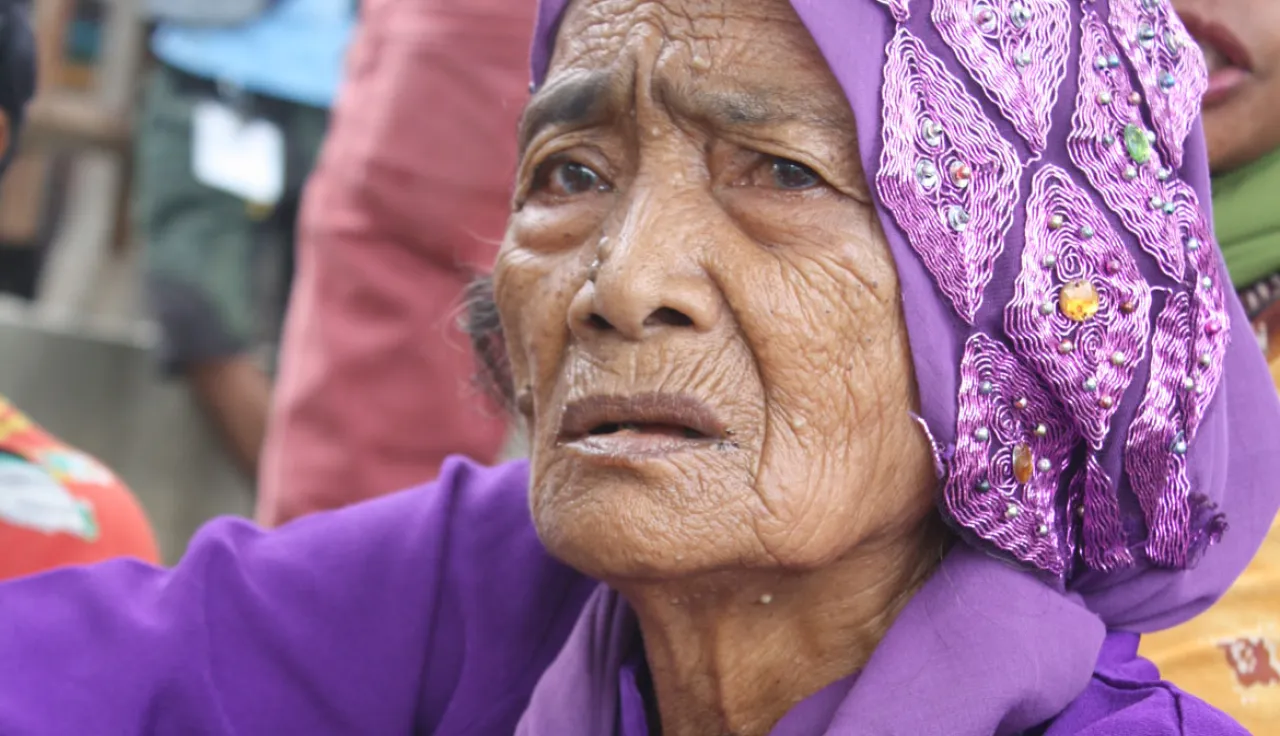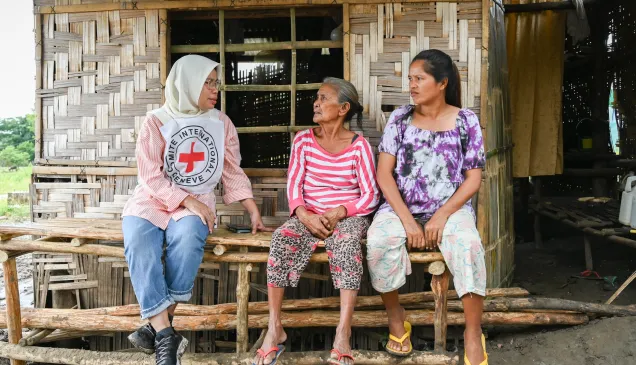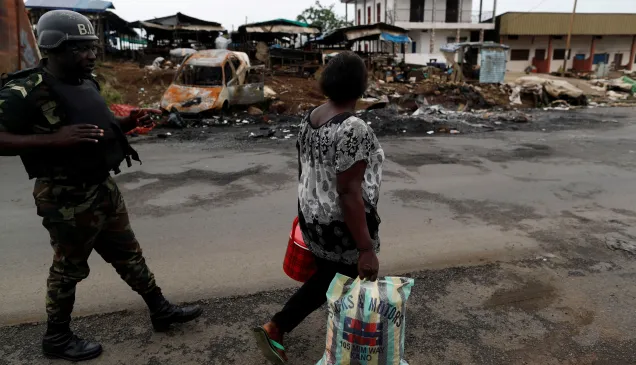Philippines: The uncertainty of displacement

In central Mindanao, thousands of people have been living precariously due to recurrent fighting. Pockets of skirmishes often erupt that result in civilian displacement.
The hostilities between armed groups in February resulted in around 4,000 families fleeing to safety in evacuation centers in Pagalungan, Maguindanao and in Pikit, North Cotabato.
At the height of the fighting, affected civilians managed to bring only few belongings with them and limited supplies of food.
For over three weeks, 74-year-old Sadiya Makayaw stayed with her relatives in a cramped makeshift shelter in the village of Gligli, Pikit. She recalled that before the fighting began in early February, all her neighbours left at dawn when armed men were sighted near their village.
"We heard loud gunfire. We didn't have a choice but to leave," she said in Maguindanaoan, the local dialect.
Sadiya had been living alone in her home in the village of Kabasalan, also in Pikit, after her husband and two children passed away more than a decade ago.
Grabbing what she could, Sadiya joined her neighbours to "bakwit" (evacuate), unsure of when they would return. She was left with nothing – even the clothes she wears now are borrowed.
Providing life-saving assistance
Together with the Philippine Red Cross (PRC), the ICRC assisted 2,335 families in Pikit and 1,732 in Pagalungan who have been in evacuation centres for close to a month.
Displaced people were given food rations (enough for two weeks), hygiene items and tarpaulins. Potable water was also delivered daily from 27 February to 5 March to the two largest evacuation camps in Pagalungan, in order to help safeguard the health and sanitation needs of the communities.
"Our support supplements the help being provided by the authorities. The violent situation and lack of security hamper already vulnerable communities from going back to their homes. As such, they were forced to stay in evacuation centres for quite some time," explained Maria Carmen Echezarreta Inurritegui, ICRC head of office in Cotabato.
The majority of people living in the areas affected by conflict live in poverty, relying heavily on farming and fishing as their main sources of income. Due to the volatile situation and the presence of improvised explosive devices, evacuees couldn't go back to tend their farms. The difficulty thus increases each day for displaced families as they have to put food on the table to survive.
Fortunately, Sadiya's family received assistance in Pikit. The support, however, is not enough to put her worries to rest, as she fears nothing will be left of her belongings when she finally returns to her village.
At the evacuation center, Sadiya heard stories of damaged houses. She hopes the small farm where she grows corn will be spared.
"I can no longer count how many times I have evacuated. It is something I do not want to keep doing now that I'm old," says Sadiya, with a weak smile on her face.
In March, month-long armed fighting between government forces and armed groups occurred and caused further displacement in several areas of Maguindanao.
"The prolonged dry season is affecting the health of displaced families and reducing their incomes. Each day in these temporary sites is a major struggle for them, and their future remains unclear," said Pascal Mauchle, head of the ICRC in the Philippines.
Remaining responsive to the needs of the displaced, the ICRC and the PRC currently provide clean water every day to approximately 24,000 people in 24 evacuation centers, in the municipalities of Datu Salibo and Mamasapano. The ICRC are also preparing to launch targeted food distributions in May.



